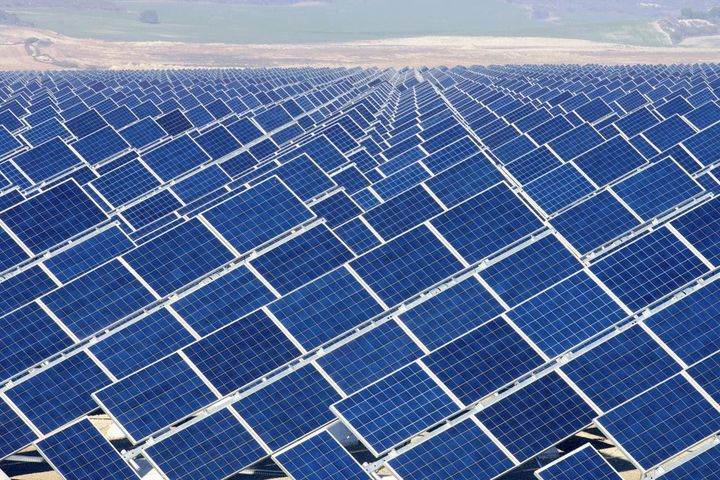 Prices of Polysilicon Expected to Rise as China Raises Anti-Dumping Duties on Polysilicon Imports From South Korea
Prices of Polysilicon Expected to Rise as China Raises Anti-Dumping Duties on Polysilicon Imports From South Korea(Yicai Global) Nov. 22 -- China has raised the anti-dumping duty rates of poly-silicon imported from many companies in South Korea. This move, together with overhaul of producers and strong market demand, will push up polysilicon prices in the first three quarters next year, industry insiders expect.
Polysilicon prices will continue to rise, said Dr. Rudolf Staudigl, president & CEO of the executive board Wacker Chemie AG, the world's second largest polysilicon producer told Shanghai Securities News in an interview
Compared with initial rates, the adjustment for the rates decided in this interim review is roughly as follows: OCI Company Ltd's [KRX:010060] tariff rate raised from 2.4 percent to 4.4 percent, Hankook's duty rate increased from 2.8 percent to 9.5 percent, and tariff rate for Hanwha Chemical Co. decreased from 12.3 percent to 8.9 percent. Anti-dumping duties substantially increased for other companies, with new rates ranging from 88.7 percent to 113.8 percent. In this interim review, the impact on OCI is relatively the smallest, while Hanwha Chemical is benefiting from the reduction in the tax rate, which may lead to increased exports to China, said a statement from China's ministry of commerce regarding interim review rulings of anti-dumping and anti-subsidy duties on solar grade polysilicon imports originating in South Korea.
"The tariff increase this time is not too much, especially the tariff increase for OCI is the minimum," Ding Ya, a new energy think tank expert at SolarZoom, a photovoltaic portal in China, said. At present, the production capacity of high-purity polycrystalline silicon that can be used for crystal pulling in China is not high, while the monocrystalline silicon chip production has been greatly expanded this year, resulting in a slight tight supply of high-purity polycrystalline silicon. OCI has been one of the major high-purity polysilicon suppliers for Chinese silicon enterprises. Once there is a substantial increase in anti-dumping duties, it is likely to cause monocrystalline silicon enterprises to lose the source of silicon supply. This may be one of the reasons that the tariff rate increase this time is not large, he opined.
China's domestic polysilicon industry has grown stronger. The cost of many leading polysilicon companies such as GCL New Energy Holdings and Tongwei Solar Co. is much lower than OCI and other foreign companies, and their production is still expanding, which also makes the anti-dumping duty rates not increase substantially, he added.
"The rise in polysilicon prices in the second half of this year was mainly due to market supply and demand, including the rapid rise in demand for high-quality photovoltaic raw materials in China and some suppliers increase maintenance or improve product quality, which have led to reduced supplies and higher prices, Shi added.